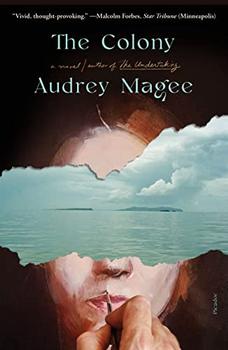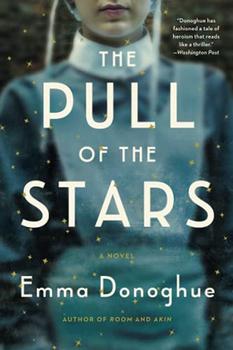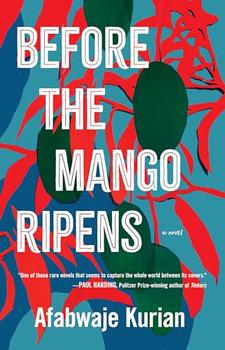Summary | Excerpt | Reviews | Beyond the book | Read-Alikes | Genres & Themes | Author Bio

In Emma Donoghue's latest masterpiece, an English nurse brought to a small Irish village to observe what appears to be a miracle - a girl said to have survived without food for months - soon finds herself fighting to save the child's life.
Tourists flock to the cabin of eleven-year-old Anna O'Donnell, who believes herself to be living off manna from heaven, and a journalist is sent to cover the sensation. Lib Wright, a veteran of Florence Nightingale's Crimean campaign, is hired to keep watch over the girl.
Written with all the propulsive tension that made Room a huge bestseller, The Wonder works beautifully on many levels--a tale of two strangers who transform each other's lives, a powerful psychological thriller, and a story of love pitted against evil.
Excerpt
The Wonder
The journey was no worse than she expected. A train from London to Liverpool; the steam packet overnight to Dublin; a slow Sunday train west to a town called Athlone.
A driver was waiting. "Mrs. Wright?"
Lib had known many Irishmen, soldiers. But that was some years ago, so her ear strained now to make out the driver's words.
He carried her trunk to what he called the jaunting car. An Irish misnomer; nothing jaunty about this bare cart. Lib settled herself on the single bench down the middle, her boots hanging closer to the right-hand wheel than she liked. She put up her steel-frame umbrella against the drizzle. This was better than the stuffy train, at least.
On the other side of the bench, slouching so his back almost touched hers, the driver flicked his whip. "Go on, now!"
The shaggy pony stirred.
The few people on the macadamised road out of Athlone seemed wan, which Lib attributed to the infamous diet of potatoes and little else. Perhaps that was ...
The Wonder is a psychological enigma, fraught with mortal tension, that the reader solves alongside Lib. Donoghue raises compelling philosophical questions about free will, the extent to which a just society can tolerate religious zealotry, and the moral/ethical obligations of medical practitioners...continued
Full Review
 (657 words)
(657 words)
(Reviewed by Lisa Butts).
The Wonder was inspired by several real-life instances of girls who claimed to be beyond the earthly requirement of eating. The tradition dates back to at least medieval times when it was common for devoutly religious women to abstain from food, among other essentials. Intermittent fasting is a common custom in many religions and viewed as a sign of pious constraint.
Historian Rudolph Bell coined the term "holy anorexia" to describe this practice, associated with the 13th and 14th-century saints, St. Catherine of Siena and St. Clare of Assisi, among others. St. Catherine was known for extreme fasts and reportedly suffered "grievous pains" when she was forced to eat. St. Clare commonly fasted three days out of the week.
Perhaps the ...

If you liked The Wonder, try these:

by Audrey Magee
Published 2023
In 1979, as violence erupts all over Ireland, two outsiders travel to a small island off the west coast in search of their own answers, despite what it may cost the islanders.

by Emma Donoghue
Published 2021
In Dublin, 1918, a maternity ward at the height of the Great Flu is a small world of work, risk, death, and unlooked-for love, in "Donoghue's best novel since Room" (Kirkus Reviews).




At times, our own light goes out, and is rekindled by a spark from another person.
Click Here to find out who said this, as well as discovering other famous literary quotes!